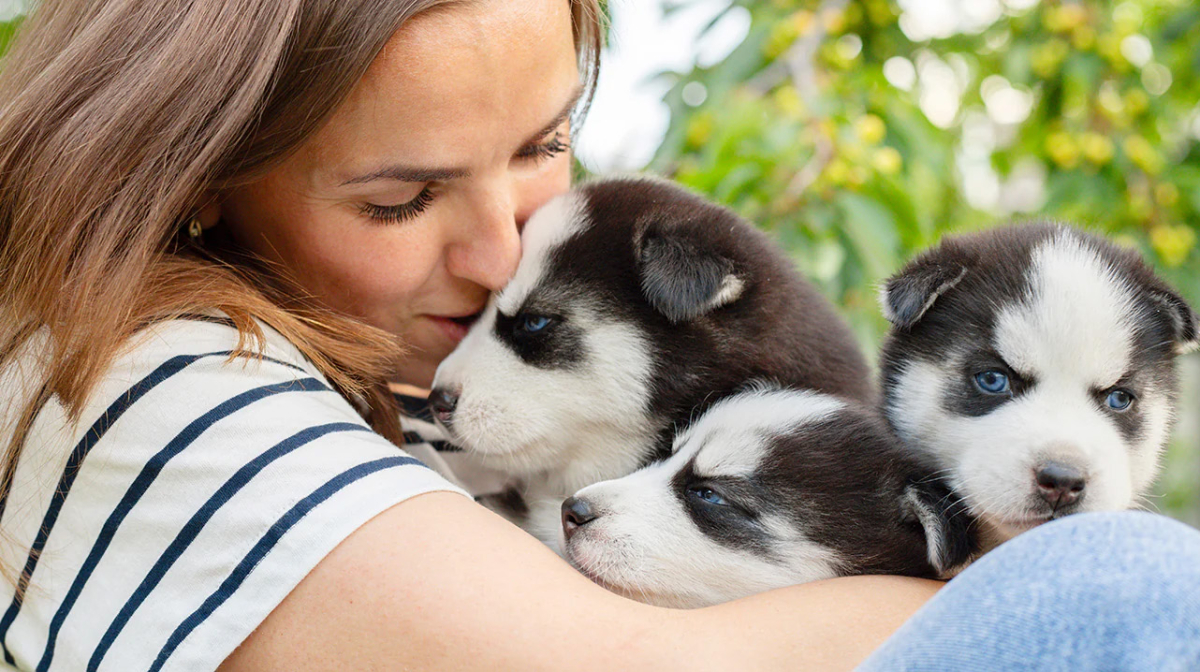
Interested in how to become a dog breeder? Responsible breeding practices play a key role in the well-being of any dog breed and only experienced dog owners should explore breeding as a career. Becoming a dog breeder is a huge responsibility which requires knowledge, understanding and appreciation for the breed of dog involved. Breeders will also shoulder the emotional, physical and financial responsibility for all the dogs they keep and this is no easy task, it requires investing lots of time as well as money. Dog breeders in the UK must ensure they are licensed and registered if they breed three or more litters in a 12-month period in order to sell any of the puppies. Breeders should also adhere to safe and ethical dog breeding practices, unethical breeding practices are cruel and failing to meet breeding and animal welfare standards is also a crime.
What to know as a first time dog breeder?
This article will be explore how to become a first-time dog breeder. Before doing anything else you will need to consider if your dog is suitable for breeding and if dog breeding is right for you. Dog breeding is not an easy task and it is a huge responsibility, only true dog lovers should consider it. Think about your reasons for doing it as it is a labour of love and should not be pursued for purely financial gain! Next, health screening, potential mates and the suitability of your dog for breeding needs to be considered. If you need more information on these topics you can visit the Breeders Hub.
When is a dog breeding licence necessary?
Becoming a dog breeder in the UK requires a licence. Anyone breeding more than 3 litters a year with the intention of selling them must register with their local council to obtain a dog breeding licence, however, specific litter requirements may vary depending on your location. Breeding licences are only necessary when there is a commercial goal to sell the puppies.
You can contact your local council to begin the application process for your first dog breeding licence and they will explain all the essential steps. The application fee will depend on your location, you will also be required to pay an annual licence fee and vet bills (however the licence duration can differ based on your council.)
What are the conditions for obtaining a breeding licence?
In the UK breeding licences are provided by local councils. Prospective breeders should be aware of the conditions for obtaining a dog breeding licence, some councils might also have differing conditions required to grant a breeding licence, so make sure to check the details with your local council.
Kept in suitable accommodation: dogs and puppies must always be clean, dry, warm and safe to ensure ethical welfare.
Provided with adequate food, drink and bedding: you should also make sure the puppies and dogs are clean, healthy and well fed with a complete and balanced, nutritious diet.
Exercised regularly: all puppies and dogs should be exercised regularly in a safe and appropriate environment.
Transported in safe and comfortable conditions: dogs and puppies should always be transported in safe and comfortable conditions that protect the animals' health, welfare and comfort at all times.
Protected in case of an emergency, like a fire: you must be able to protect your dogs and puppies from emergencies like fires, this includes having an emergency evacuation plan in place, practised annually.
Protected from pain, injury, suffering and disease: health screening and regular trips to the vet will be necessary to keep your dogs and pups in tip top health. You should be vigilant for any warning signs of illness.
Top tips for becoming a breeder
Becoming a first-time breeder is a rewarding experience but it can also be difficult to prepare for and confusing to navigate, so we have put together our top tips so you can break down each step more easily.
Get Prepared for Breeding
Make sure you understand what you’re getting into by doing breed specific research on everything from selecting a suitable mate to caring for a pregnant dog. Attending dog events and connecting with other breeders online and offline is a great way to soak up knowledge. You can also use our Breeders Hub to access more in depth advice on a wide selection of dog breeder topics.
Breed to Improve
A responsible breeder’s motto is “Breed to Improve.” This means you should be doing everything possible to avoid serious genetic issues by finding mates that will balance or eliminate any existing flaws. This will require a strong knowledge of inbreeding, DNA testing and health screening. It's also important to consider the temperament and behaviour of both dogs when choosing potential parents.
Choose the Proper Mate
Once you understand the commitment involved, it’s time to search for a suitable mate (stud). Learn about what qualities to look out for in a compatible stud dog.
Approach Breeding Properly
Be aware that genetic testing and health screening is required before breeding so you can identify any genetic problems that might impact your litter ahead of time. You must also assess the age of the dogs being bred from to ensure they are of a healthy age for breeding.
Take Proper Care of Pregnancy and Puppies
Do lots of research into the proper care of pregnancy and puppies before it happens so you can provide the best possible care for your puppies. Your veterinarian can confirm a pregnancy and advise you on any special care requirements. You’ll want to create a whelping box early, so your dog has time to get accustomed to it before delivery. Whelping is the name for a dog giving birth.
Register Your Litter
For purebred dogs, make sure you register your litter with the Kennel Club, so it creates an official record and offers the new owner access to information and valuable breeder services.
Wean Puppies Correctly
Your trusted veterinarian is a great source of information and support for weaning your puppies. Most breeds are weaned between two to four weeks of age.
Choose New Homes Carefully
It is also your responsibility to ensure that the animals you create also end up in responsible hands, this can be achieved by screening potential applicants for any red flags.
Restrictions on obtaining a licence
There are certain restrictions placed on obtaining a breeders licence, this is to protect puppies and dogs from animal abuse. Anyone who has committed animal welfare offences or has been banned from selling pets previously will not be able to get a dog breeder's licence. Ultimately, the importance of a safe and regulated breeding environment for all types of dog and pets is paramount. Looking for more advice on dog breeding? Join our free James Wellbeloved™ Puppy Club today!









